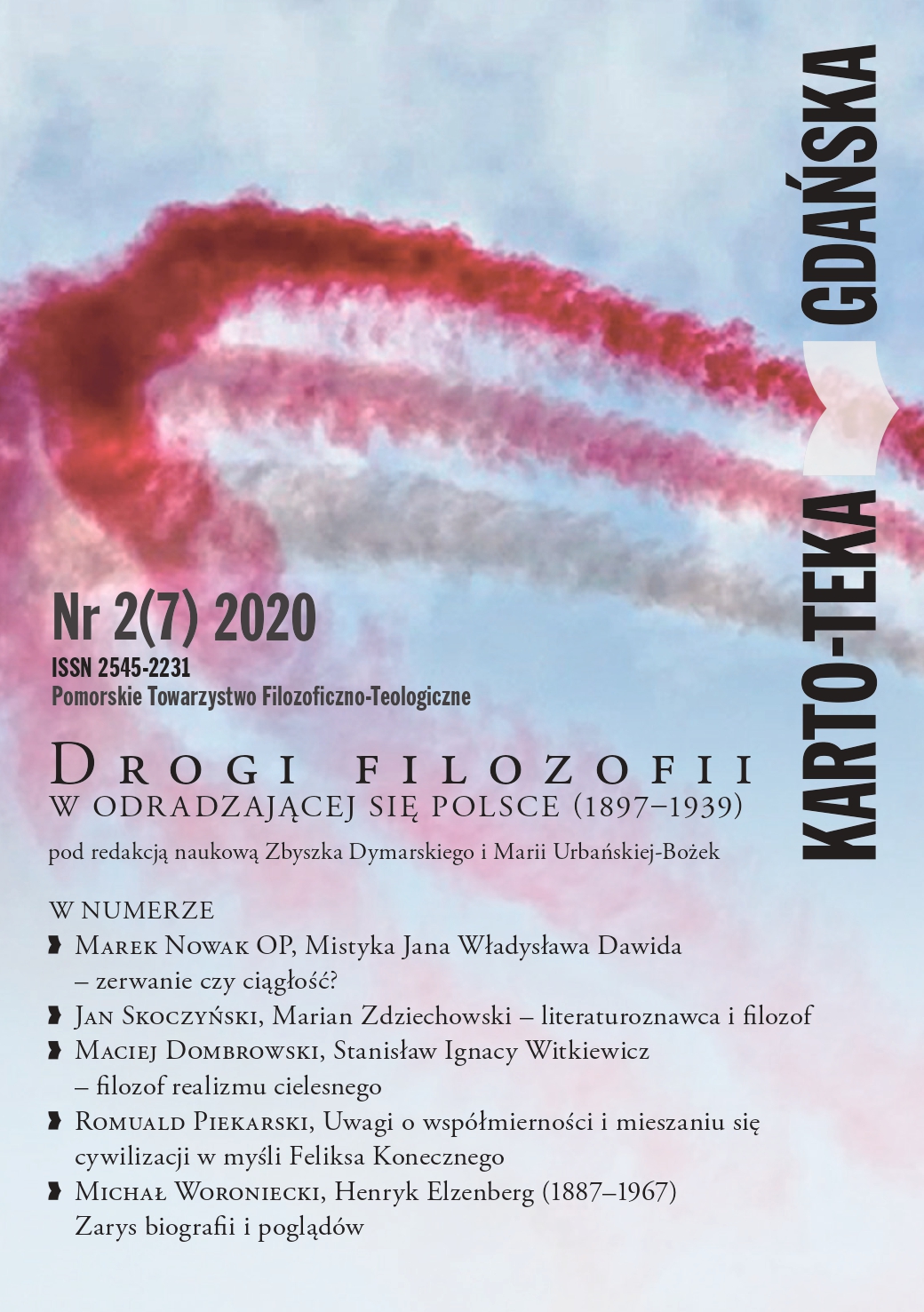Love
Keywords:
love, logical analysis, personal experience, psychology of love, ethical value of love, amorous misunderstanding, sensual love, satisfaction, amorous choice, reverenceAbstract
The text comes from the archives constituting the legacy of Henryk Ezenberg. It is the result of the philosopher’s attempts aiming at a certain systematization of the concept and the fenomenon of love. According to the author himself, this outline of such a classification must be taken as a set of loose notes of diversified character, not constituting a whole. Defining love’s essence, the philosopher distinguishes the two main groups of love theories, depending on whether the loved thing is regarded as absolute or relative. At the same time he tries to single out the fundamental values able to arouse love, which embrace identity or similarity, beauty or good, and utility or pleasure. The triple moral character of love arises from the way of dealing with a given love object, which may consist in adoration/reverance, possesion/domination, or desire of its good/wishing it well. If we want to describe happiness of love in its difference from the ethical or esthetical value of love, we need to specify the various configurations of different kinds of loving and being loved, which occur in particular amorous phenomena, letting us to explore the determinants of amorous choices as well as the sources of amorous misunderstandings. The reference to psychology of love between a man and a woman helps to isolate its two essential elements, the one residing in one’s senses, the other rooted in one’s psyche. As regards the latter element - the complementary nature of psychological masculinity and feminity – the futher two types of love can be highlighted based on their oposite characteristics: the lower one where woman appears as a slave, and the higher one where she appears as a queen. The ultimate ideal of love seems to be the relationship of kindred souls as a route to alleviate the loneliness inherent in the sense of one’s own individual being through getting out of oneself and externalizing oneself.

 Academic Scientific Journals
Academic Scientific Journals

